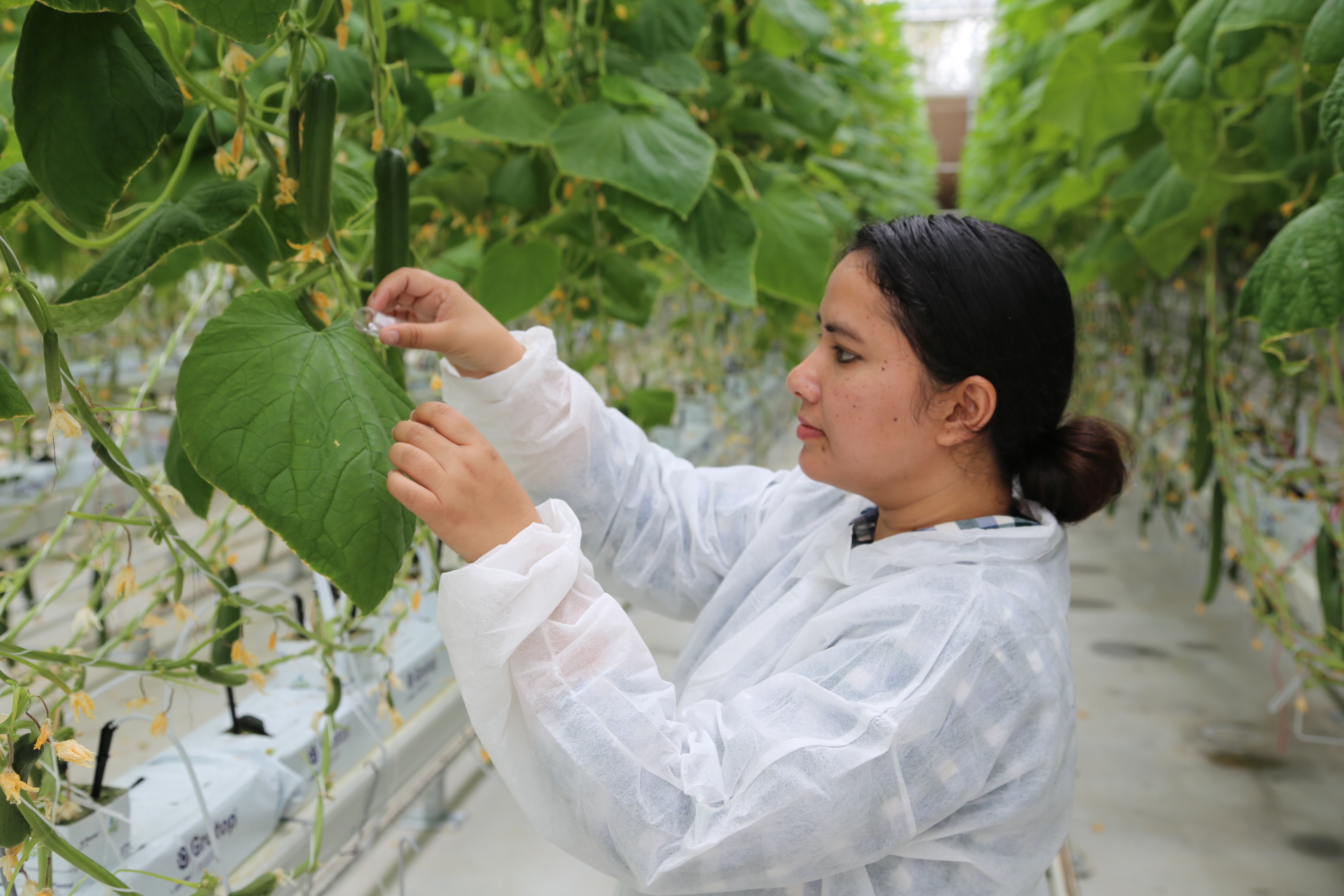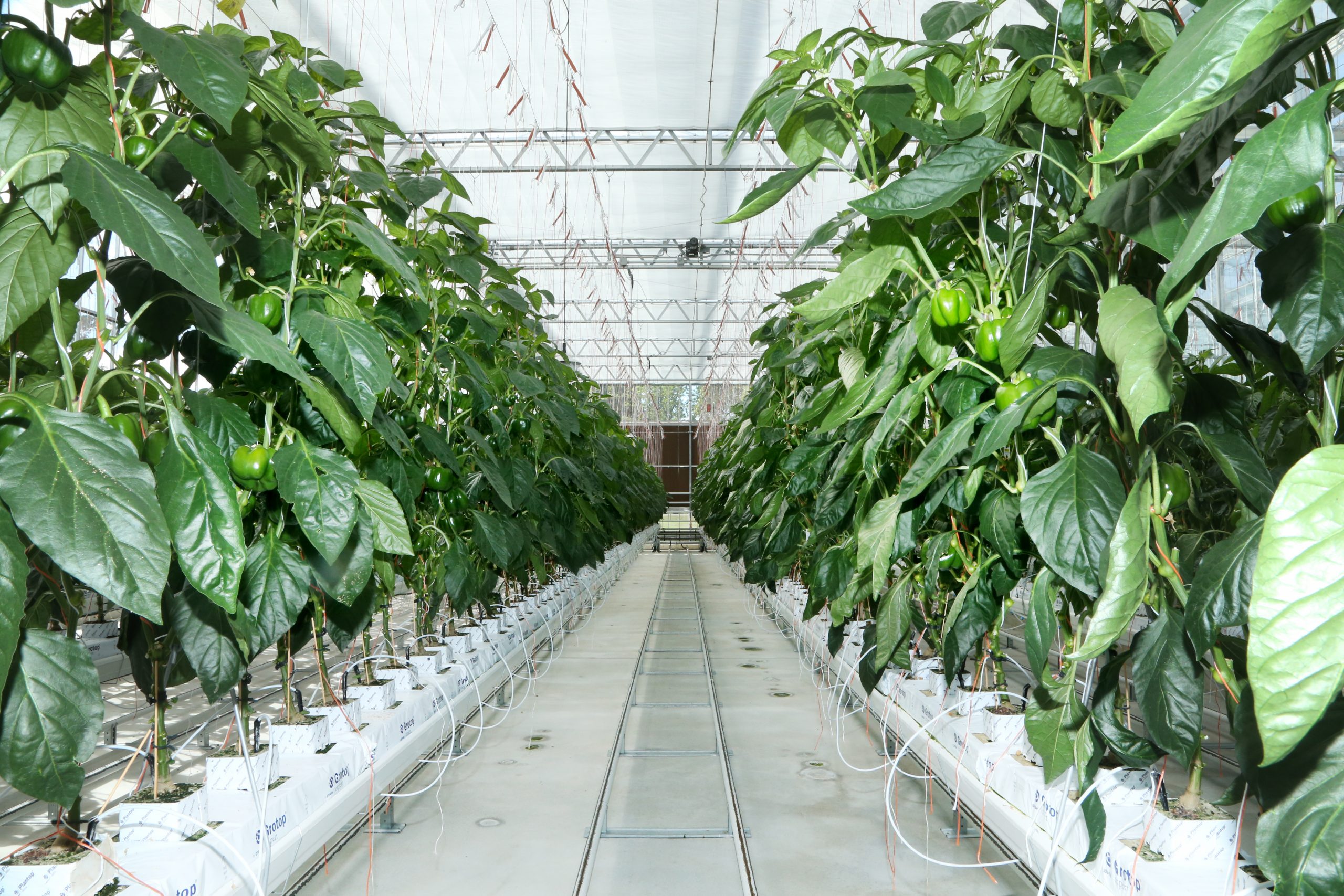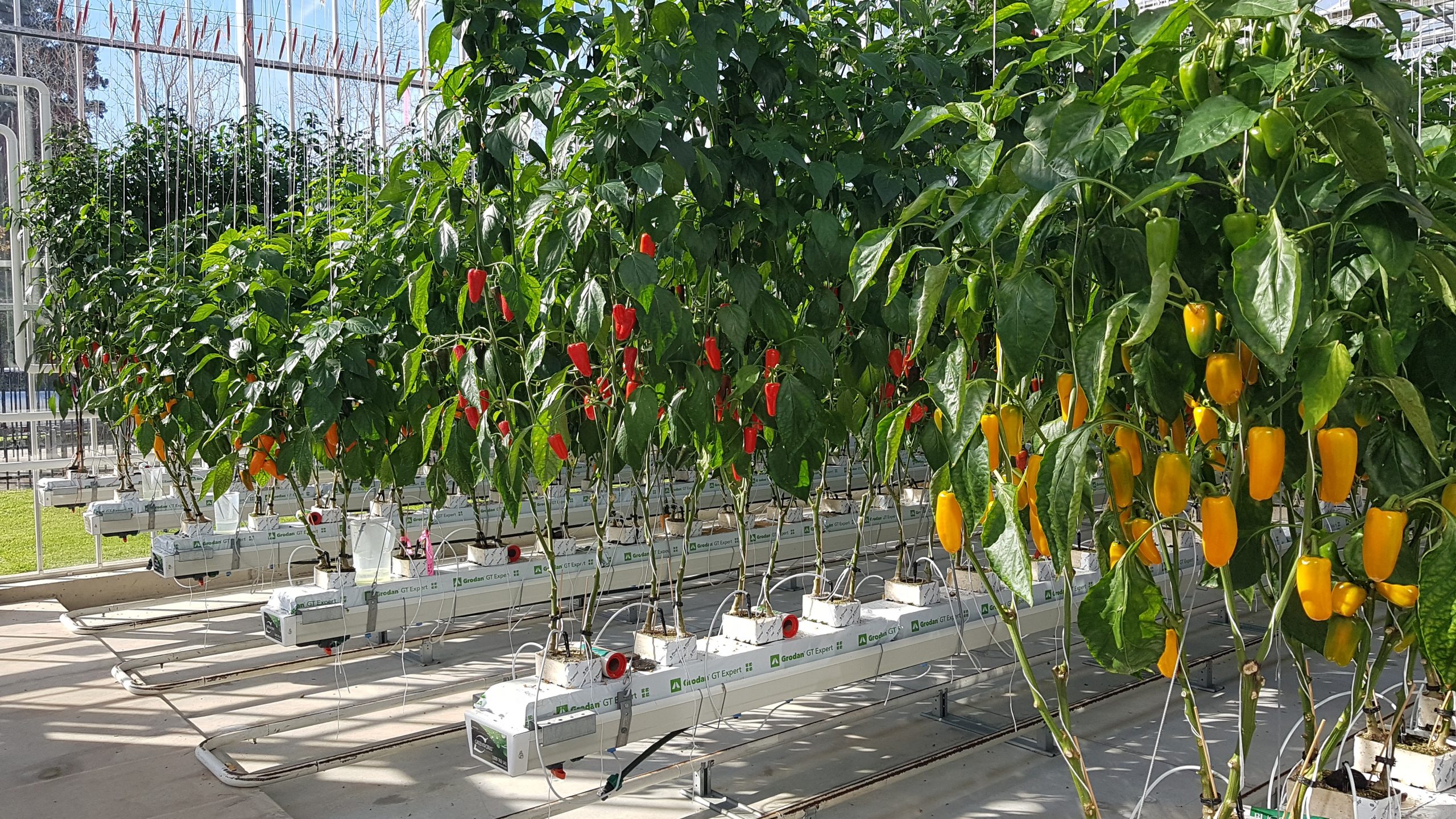
Gaining an insight into the protected cropping space
14 September 2021
Prioritising protected cropping in Australian agriculture
14 September 2021In 2020, Western Sydney University joined forces with Hort Innovation and five industry partners to establish the Masterclass in Protected Cropping, a one-year course that offers a range of graded qualifications culminating in a Graduate Diploma (Protected Cropping). These courses stem from a partnership under the Hort Frontiers Leadership Fund – Emerging Leaders in Protected Cropping (LP18000) – and include a combination of flexible online learning modules and intensive on-site workshops.
The Emerging Leaders in Protected Cropping program is well-underway at Western Sydney University’s (WSU) Hawkesbury campus, with students participating in on-site workshops during the summer of 2020 and in April this year.
The workshops are part of the science and production-based units undertaken during the course. They focus on software and hardware systems; crop and produce management; integrated pest management; and fertigation systems. Practical activities were conducted in the laboratory as well as in the National Vegetable Protected Cropping Centre, which is a state-of-the-art vegetable glasshouse production research facility located on the Hawkesbury campus. Students also had to participate in discussion groups and present information on a particular topic or aspect of the unit.
Each workshop was held over two and a half days and are part of a blended learning program consisting of online lectures, tutorials and essential readings. During the lectures, students heard from a range of WSU experts and industry members such as Protected Cropping Australia (PCA) Chair Nicky Mann and PCA Deputy Chair Tony Bundock; Elio Jovicich from the Department of Agriculture and Fisheries, Queensland; Dion Potter from Syngenta; and Sun City Produce Managing Director Bao Duy Nguyen.
Other units to be undertaken throughout the Graduate Diploma (Protected Cropping) course include business and work integrated learning. The former comes from WSU’s School of Business, to help growers understand those business components that they may not be familiar with. Work integrated learning involves students working within their own horticultural business or employer, or being matched with an industry business to provide hands-on problem solving. Their topic can be built around a research project, management questioning or marketing and branding.
Filling gaps
As reported previously in this publication, the protected cropping industry in Australia has been growing quite rapidly, at an average of around 4-5 per cent per year, which has resulted skills shortages.
WSU Senior Horticultural Education Officer David Randall explained that the main aim of this course is to provide a qualification that’s never been offered before, and to provide the industry with locally trained, innovative experts in this field.
“Because that’s what we don’t have enough of in Australia. Many growers are using overseas consultants. They’re paying a lot of money for people who don’t understand our climate, our resource structures, and our pest and diseases. We really need local experts,” David said.
It was the horticulture industry itself that identified these gaps, as David explained.
“This whole avenue of career development has been put forward by the university because the industry has been telling us for years that they need trained and qualified people.
“It has to have a framework that can recognise people’s expertise. This course has been born from industry engagement, and we have a reference panel of industry members that has helped us to develop these units and guide everything, from the topics that we cover to the assessment tasks. We’re responding to the industry’s call-out.”
Growers and industry members interested in upskilling or gaining leadership skills are invited to enrol in the Emerging Leaders in Protected Cropping program, while employers are urged to support any prospective students.
“One of the pieces of feedback we’ve gotten is that the hours and the cost is quite substantial for an individual, and it’s really beneficial to your employer for you to have that qualification and that extra training,” David said.
“It takes the burden off the employer to have to train staff and, with employer support, the current crop of students are doing very well – and the overall feedback has been positive.”
Opportunities for students
As its name suggests, the Emerging Leaders in Protected Cropping program is designed to train emerging leaders in the protected cropping industry.
There are three different elements to the program: The Graduate Diploma in Protected Cropping, which is available to those who have a bachelor’s degree; the Graduate Certificate in Protected Cropping; and there are units being undertaken as a major in a Master of Science, majoring in Greenhouse Horticulture. The Graduate Certificate is half of the Diploma course and is designed for those who have an industry background and are looking to upskill.
Vegetables Australia spoke to three students who have been involved in the program – Elliott Akintola, Mamta Khadka Basnet and Claudio Cortellazzi. Click on each name to read about their experiences and what they have learnt as a result of their participation.
Find out more
Please contact David Randall by emailing david.randall@westernsydney.edu.au.
Further details can be found on the Western Sydney University website.
Emerging leaders in protected cropping is funded by the Hort Frontiers Leadership Fund, part of the Hort Frontiers strategic partnership initiative developed by Hort Innovation, with co-investment from Western Sydney University, Flavorite, Costa Group Holdings, Perfection Fresh, Australian Fresh Leaf Herbs, ICI Industries and contributions from the Australian Government.
Project Number: LP18000
Cover image: The snacking capsicum crop was planted for teaching and research purposes and was used by the students in the workshops in April as well as the second year undergraduate students in the unit ‘Greenhouse Technology for Food Sustainability’.

